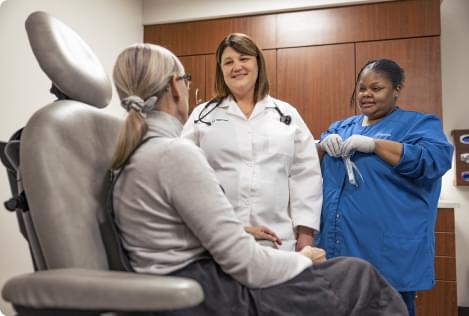Published: Feb. 15, 2011
High-definition television (HDTV) has made its way from the living room to the diagnosis and treatment rooms at Sparrow Hospital, one of the first hospitals in Michigan to introduce the technology to help doctors diagnose diseases in the upper and lower gastrointestinal tract.
Sparrow physicians now perform routine colonoscopies using new, wide angle scopes with zoom capabilities that project a crystal clear HDTV image, offering physicians breathtaking images of the colon with a high level of detail and color.
"High-definition colonoscopy is significantly more sensitive than standard colonoscopy" said Iftiker Ahmad, M.D., one of several Sparrow physicians who are currently using the new technology. "The clearer the images, the better chance we have to find and remove polyps that could eventually lead to cancer."
According to its manufacturer Olympus, Sparrow's new system is the world's first endoscope platform to deliver high-definition television (HDTV) and Narrow Band Imaging™ (NBI). The HDTV signal from the system's video processor is designed to produce 1,080 lines of resolution, which more than doubles the number of scan lines used by conventional systems. NBI is a new image technology which takes advantage of the scattering and absorption properties of human tissue. The result is a remarkably clear view of fine capillary patterns. This allows physicians to better visualize areas of possible concern.
Colonoscopy is the accepted gold standard for the detection of colorectal cancer. The American Cancer Society (ACS) projects that colon and rectal cancer (CRC) will kill 55,170 Americans this year and is the second leading cause of cancer-related deaths for men and women in the U.S. The ACS also points out that the 5-year survival rate for people whose colorectal cancer is treated in an early stage, before it has spread, is greater than 90 percent.
The ACS recommends that beginning at age 50, both men and women should be screened for colon and rectal cancer (CRC). People with CRC risk factors, such as a personal history of CRC or adenomatous polyps or a strong family history of colorectal cancer or polyps, should talk to their doctor about starting CRC screening earlier and/or undergoing screening more often.
For more information regarding CRC screening, go to the ACS website, www.cancer.org.


